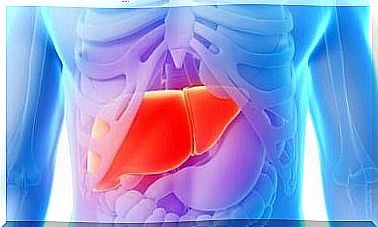Autoimmune Diseases: 5 Important Information

Autoimmune diseases are largely a mystery to science, which is why we do not yet have enough information about them. To this day, we have not found out why the immune system attacks and even destroys healthy cells in the body.
Multiple sclerosis, Crohn’s disease and rheumatoid arthritis are some of the most serious and well-known autoimmune diseases.
In most cases, autoimmune diseases involve a genetic predisposition, but environmental factors must also be considered.
People who live with these diseases on a daily basis face a drastic decrease in their quality of life. In general, autoimmune diseases tend to be chronic and affect many parts of the body. An example would be lupus.
In today’s article, we present 5 important things about the immune system that help you better understand how it works.
If you have an autoimmune disease or know a person who is in this situation, do not be afraid. Look for new information and medical treatments to help you lead a better life!
Some essential information about autoimmune diseases
1. Causes of autoimmune diseases
First of all, it is important to know that genetic inheritance plays an important role in autoimmune diseases. The interaction between the environment and certain genes conditions the appearance of these diseases. However, this correlation is not 100% certain.
The theory is based on intestinal permeability, an abnormality in these organs that allows certain antigens to pass from the intestines into the blood.
The reaction of the immune system changes, it perceives at the level of certain organs the appearance of a tissue considered dangerous, for which reason it attacks and destroys it.

2. Autoimmune diseases are an increasingly common diagnosis
The fact that more and more cases are being identified does not mean that these diseases are more widespread than in the past. Today, there are more effective ways to diagnose certain diseases, which were once confused with allergies or other conditions.
Here is more information on how autoimmune diseases are perceived and understood today:
- We now know that these diseases are a major health problem. We need to give patients more social support.
- Science is always discovering new ways to explain the autoimmune process. Specialists study the weaknesses and symptoms associated with different groups of chronic diseases.
- Many children now receive an appropriate diagnosis in a timely manner, and are subjected to appropriate treatment as soon as possible.
3. Types of autoimmune diseases
Autoimmune diseases can be included in two categories:
- Systemic diseases, which do not attack a single organ, but several, such as celiac disease and amyotrophic lateral sclerosis.
- Localized syndromes, which focus on a single tissue, be it dermatological, hematological or endocrinological. These include Hashimoto’s thyroiditis and colitis.
4. Treatment of autoimmune diseases
Most autoimmune diseases have no cure. It is necessary to learn to live with these diseases and to rely on the help provided by medical staff.
In the fight against autoimmune diseases, take into account the following information:
- Relief of symptoms with appropriate treatment.
- Protecting the organs (intestines, liver, skin) and keeping them functioning.
- It is important to maintain your integrity and a superior quality of life for as long as possible.
- Try new treatments and stay up to date with all the new advances, discoveries and strategies in the medical field.
5. Remember that you are not alone

Living with lupus or multiple sclerosis is not easy for the patient or his family. Here are some things to keep in mind:
- To cope with these difficult circumstances, it is necessary to treat the disease using various methods.
- In addition, medical treatment must be accompanied by psychosocial treatment. It is important to be aware that you are not alone, that there are many people who are with you and understand what you are going through.
- Support groups are essential in these situations. They help you better understand your illness, but also to discover new perspectives or cases similar to yours. Above all, if you join these groups, you can keep up to date with new advances and treatments.
Even if it is difficult to live with them, autoimmune diseases can be the reason why you take better care of yourself and fight for a dignified life and have a superior quality of life. Remember that you are not alone!
Science continues to find ways to give you a better life and fight disease and its effects.









